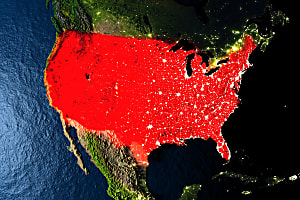NEW DELHI: The
Supreme Court on Monday drew the Centre's attention to serious allegations in a PIL about irregularities in implementation of Right to Education Act, 2010, which promised free and compulsory education for children between 6 and 14 years.
Senior advocate
Colin Gonsalves, appearing for 'Akhil Delhi Prathmik Sikshak Sangh', reeled out official data to claim that seven states — Assam, Bihar,
Chhattisgarh, Jharkhand, Odisha, UP and West Bengal — had lopsided children-teacher ratio as over 9.59 lakh posts of teachers in these states were lying vacant.
Bihar had a vacancy of 3.23 lakh teachers, UP 3.15 lakh and West Bengal 1.49 lakh, Gonsalves said. He claimed that implementing the RTE Act got further hampered by non-identification of target children, thus leaving out 3.68 crore children. "The primary work of identification of children has not been done even seven years after Parliament enacted the law," he said.
A bench of CJI Dipak Misra and Justices A M Khanwilkar and D Y
Chandrachud wondered whether the judiciary was equipped to handle such a huge task by seeking response from each state and dealing with the enormous statistics. However, with Gonsalves arguing that the issue posed a serious problem to the nation, the bench called upon attorney general K K Venugopal and sought his view.
Venugopal said education was a state subject and it would not be possible for the court to deal with it. He said he had seen similar nationwide issues pending for years
before benches headed by Justices Madan B Lokur and A K Sikri and suggested it would be appropriate that the petitioner be asked to petition the Centre on the issue.
The bench kept the petition pending and asked the petitioner to give a copy of the plea to the government. "The Union government shall focus on the issues raised by the PIL petitioner and assist the court on implementation of RTE Act," the bench said and posted the matter for further hearing on February 23.




















